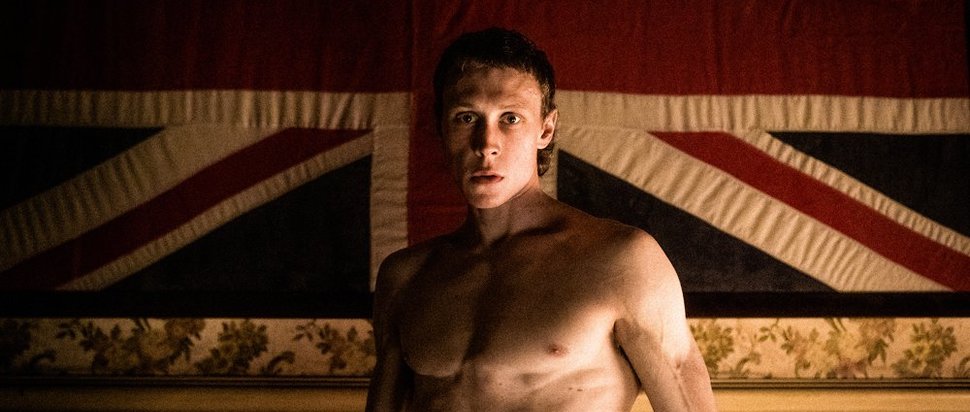Justin Kurzel on True History of the Kelly Gang
George MacKay plays Aussie folk hero/villain Ned Kelly in the latest attempt to tell the Kelly Gang's story on the big screen. Director Justin Kurzel tells us why he was somewhat daunted to take on the project, and why he wanted MacKay for the role
Following his forays into Hollywood with Assassin’s Creed (2016) and a hypnotic adaptation of Macbeth (2015), Australian director Justin Kurzel returns to home turf to tackle his homeland's most legendary folk hero. Based on the acclaimed novel by Peter Carey, and starring George MacKay as the tin-hatted hero, Kurzel seeks to unpack the myth, while giving the story a contemporary spin that peels back the tough outer shell of Australian masculinity.
Ned Kelly is a controversial figure. Why him? Why now?
The book had been given to me to direct right after I had made Snowtown back in 2011. It had been sitting there, and I was a little scared. I knew that Peter Carey had written a brilliant book, but the whole notion of doing a Ned Kelly film is a highway to hell, where you are opening yourself up for the biggest kicking in Australia. If there is one thing you don’t tackle in Australia, it’s a Ned Kelly film.
As you mention, this isn’t the first time Kelly has been brought to the big screen. Did you go back and look at earlier versions?
I saw the first one, from 1910, which is quite amazing, because at the time it was one of the first feature-length films. It’s quite extraordinary, but I think it’s always been a cursed film. You almost feel goaded into showing your version of Ned Kelly. We never wanted ours to be the definitive version – like we are putting it to rest. We wanted to make a film that reacted against what he’s seen to be and was.
Why George MacKay as Ned?
I had auditioned him for Macbeth, and he’s such an unusual-looking actor. I saw him in Captain Fantastic and he was so good and innocent, and I thought there would be something interesting in corrupting that in this story. I love the idea of a guy who had the potential to go against his DNA.
For many he’s a hero, for others a villain. How do you perceive Ned Kelly?
We are never sure if we are celebrating him or not. I find it almost unbelievable that he’s become this mythological figure, because we never seem to have an honest conversation about whether he was a Robin Hood or a murderer. Should we eat a Ned Kelly Pie and have him tattooed on our backs, or actually stand up against who he was? The film was a poke at that, and us trying to understand a different point of view.
How did you want to represent your interpretation of Kelly?
We went to town on the dresses the Kelly gang wore. I wanted to look at what white male Australian masculinity looks like, and my screenwriter, Shaun Grant, lent into that.
The film has a strong focus on Ned and his mother Ellen, played by Essie Davies. Tell me about that relationship.
There’s an idea in Australia of ‘don’t think you’re better than those that came before you’, and Ellen really embodies that. She doesn’t want Ned to think he’s anything more than a Kelly. I think Shaun really resonated with that idea, and that helped us understand why she keeps such a tight rein on it. My favourite scene in the movie is one between Ellen and Mary (Thomasin McKenzie), where she explains about the lengths a mother will go to for her child. We play with that a lot in Australian film, and it’s prevalent in Australian men – it’s always matriarchs rather than patriarchs.
With this film you step away from the traditional tropes of a period drama, focusing on visual flair rather than historical accuracy. Why is that?
I was worried about doing a historical film, and being a slave to the details, because I thought it would be a distraction. I wanted it to feel an arm’s length away. All period films are a pastiche and a fantasy. We’ve had a lot of romantic period dramas in Australia. I was interested in something timeless and like a dream existing in its own world. Just because the historical details aren’t authentic doesn’t mean that there isn’t an emotional truth.
This film really goes to town on Australian masculinity in ways we rarely see on the big screen. What’s the reaction been?
When it played in Australia there were people calling it ‘the gay Ned Kelly’, and I never made that film. I wanted their sexuality to be lucid. What I find interesting about Australian masculinity is that there will be a bunch of guys all playing football and drinking beer on a Saturday, then a couple of days later they’ll do Mad Monday where they put on dresses and all roll around with one another. It’s full of machismo and alpha male, but then you will also get a lot of Australian men dress in drag. There’s something fascinating about that.
The True History of the Kelly Gang is out now via Picturehouse Entertainment; scroll on to read our review
